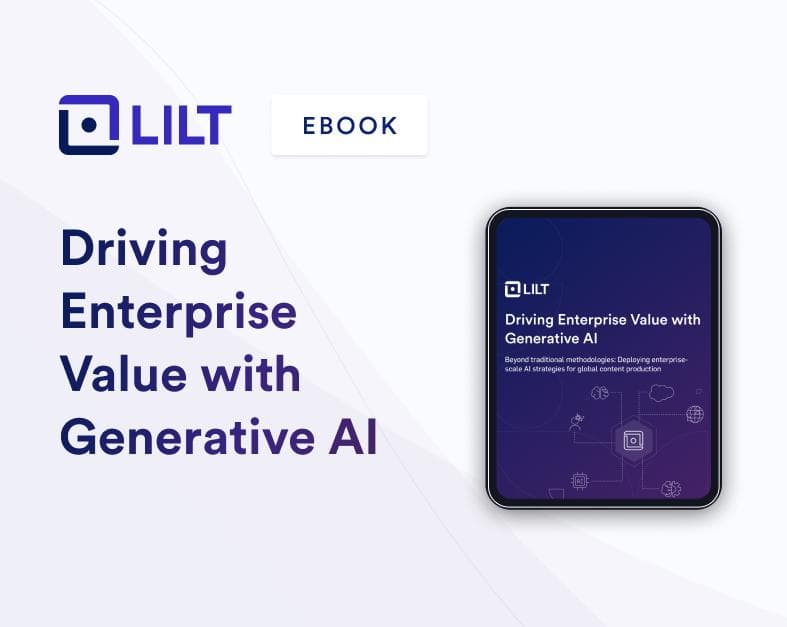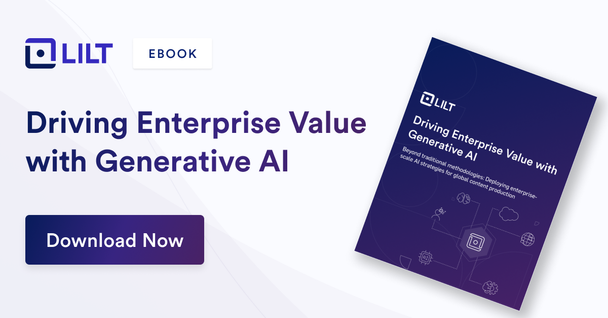AI
March 14, 2024
eBook: Driving Enterprise Value with Generative AI
As you cut through the noise and design an AI strategy for your business, simple best practices can accelerate ROI and mitigate business risks. This guide discusses how the right strategy and solution can expedite deployment and correlate business returns.
Han Mai
Associate Director, Demand Generation

In the midst of an Artificial Intelligence hype cycle, attention surrounding AI is at an all-time high. AI is now integrated into everyday applications, making it accessible to a broader audience of professionals and consumers regardless of their technical expertise.
With rapid development cycles and new capabilities of Generative AI applications, incorporation of AI into daily business operations and strategy can be transformationally impactful. Global organizations now find themselves engaged in an AI “arms race”, seeking a competitive edge through quick adoption of AI tools to maximize productivity, cost savings, and product innovation.
Despite the massive potential of AI, organizations can find it difficult to operatialize scalable and sustainable AI solutions. To proactively plan for accelerated adoption, there are key factors to consider. How do you ensure that the needs of diverse stakeholders and business units are aligned? How do you manage massive data sets across numerous systems? How do you ensure data privacy, transparency and fairness and mitigate risks and biases?
As you cut through the AI noise and design an AI strategy that can work for your business, simple best practices can accelerate ROI and mitigate business risks. This guide will discuss key factors that inform and impact an effective enterprise LLM strategy, benefits and limitations of these methods, and frameworks for operationalizing AI across your business.
Why Invest in AI Now
In 2023, AI adoption accelerated exponentially in both scope and depth, as diverse teams across global enterprises began using AI in daily operations. Organizations face increasing pressure from both top-down directives and bottom-up initiatives to implement AI as quickly as possible, with advisory boards, executive teams, customers, and employees alike all seeking to understand how AI can be applied to achieve better organizational outcomes.
No matter the industry, one thing is clear – organizations can wait no longer to implement an AI strategy. AI's transformative capabilities are evident across sectors, offering tremendous potential for better business outcomes.
- Efficiency and Productivity
AI enables efficiency, scale, and adaptability through improved productivity. A 2023 McKinsey study found that Generative AI has the potential to automate expertise sharing by 34%, and management and talent development by 49%. By introducing automation and streamlined workflows, AI can deliver meaningful productivity gains, delivering greater outputs with the same or fewer resources, scaled operational efficiencies, and meaningful correlated cost savings. - Competitive Differentiation
AI solutions are a necessity for global firms striving to sustain their competitive advantage and agility. As reported in 2023 by Accenture, 73% of companies are now prioritizing AI over other digital investments. Firms that adopt slowly will quickly fall behind; if your business hasn’t yet explored an AI strategy, chances are your industry peers have already taken strides in this direction. - Better, Quicker Decision Making
AI equips forward-thinking business leaders with the tools for strategic decision-making, enabling them to harness and analyze vast amounts of data quickly and efficiently. AI analysis enables better decision-making by extracting valuable insights from complex datasets. This data-driven approach enhances forecasting accuracy, identifies market trends, and helps optimize go-to-market strategies, leading to more informed and effective business decisions.
Download this eBook to receive best practices to ensure privacy, determine which capabilities to build vs. buy, and how to assess total enteprise ROI beyond pure cost savings.

Share this post
Find some time with LILT
Enterprise-grade content seamlessly translated with AI to help your business scale globally.
Book a MeetingShare this post